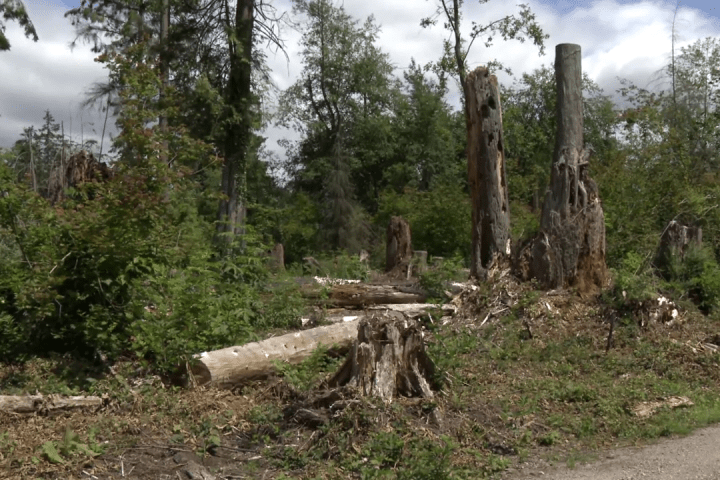Stanley Park, one of Vancouver’s most beloved and iconic landmarks, is facing a major threat to its ecosystem. The park’s trees are being ravaged by an infestation of hemlock looper moths, leading to the removal of thousands of trees.
According to the Vancouver Park Board, the hemlock looper moth is a native species that has been present in the park for many years. However, due to favorable weather conditions and a lack of natural predators, their population has exploded in recent years.
The moths lay their eggs on the needles of hemlock trees, and when the larvae hatch, they feed on the needles, causing them to turn brown and fall off. This defoliation weakens the trees and makes them more susceptible to other pests and diseases.
To combat this infestation, the Park Board has been conducting aerial surveys to identify the affected areas and prioritize tree removal. So far, over 2,500 trees have been removed, with more expected to be cut down in the coming months.
The removal of these trees is not only necessary to stop the spread of the moths, but also to ensure the safety of park visitors. Dead and weakened trees are at risk of falling, posing a danger to anyone in the vicinity.
The Park Board is also taking steps to prevent future infestations, such as introducing natural predators and implementing a monitoring and management plan. They are also asking the public to help by reporting any sightings of the moths or their larvae.
While the removal of trees may be concerning to some, it is a necessary step to protect the health and biodiversity of Stanley Park. The Park Board is committed to preserving this natural treasure for future generations to enjoy.
In the meantime, visitors to the park are advised to stay on designated trails and avoid touching or disturbing any trees. By working together, we can help mitigate the impact of the hemlock looper moth infestation and ensure the long-term sustainability of Stanley Park.



